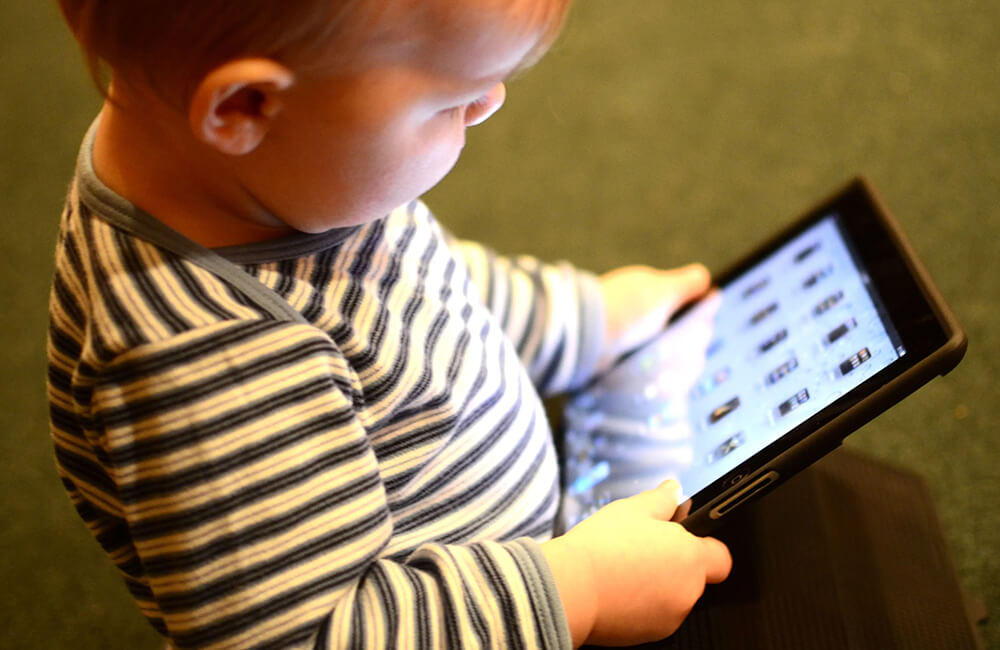Screens are part of everyday life, whether it’s a tablet for schoolwork, a smartphone for chatting with friends, or the TV that helps everyone wind down after a long day.
For many families, digital devices are practically woven into the daily routine. They’re convenient, educational, and sometimes even a much-needed break for parents and kids alike.
But as screens become more central to how children learn, play, and connect, many parents are asking the same important question: How much is too much? Is there a tipping point where screen time stops being helpful and starts to become harmful?
This blog breaks down what screen time really does to a child’s brain and offers guidance on whether (and how) to set healthy limits that work for your family.
Screen Time: You Are What You Consume
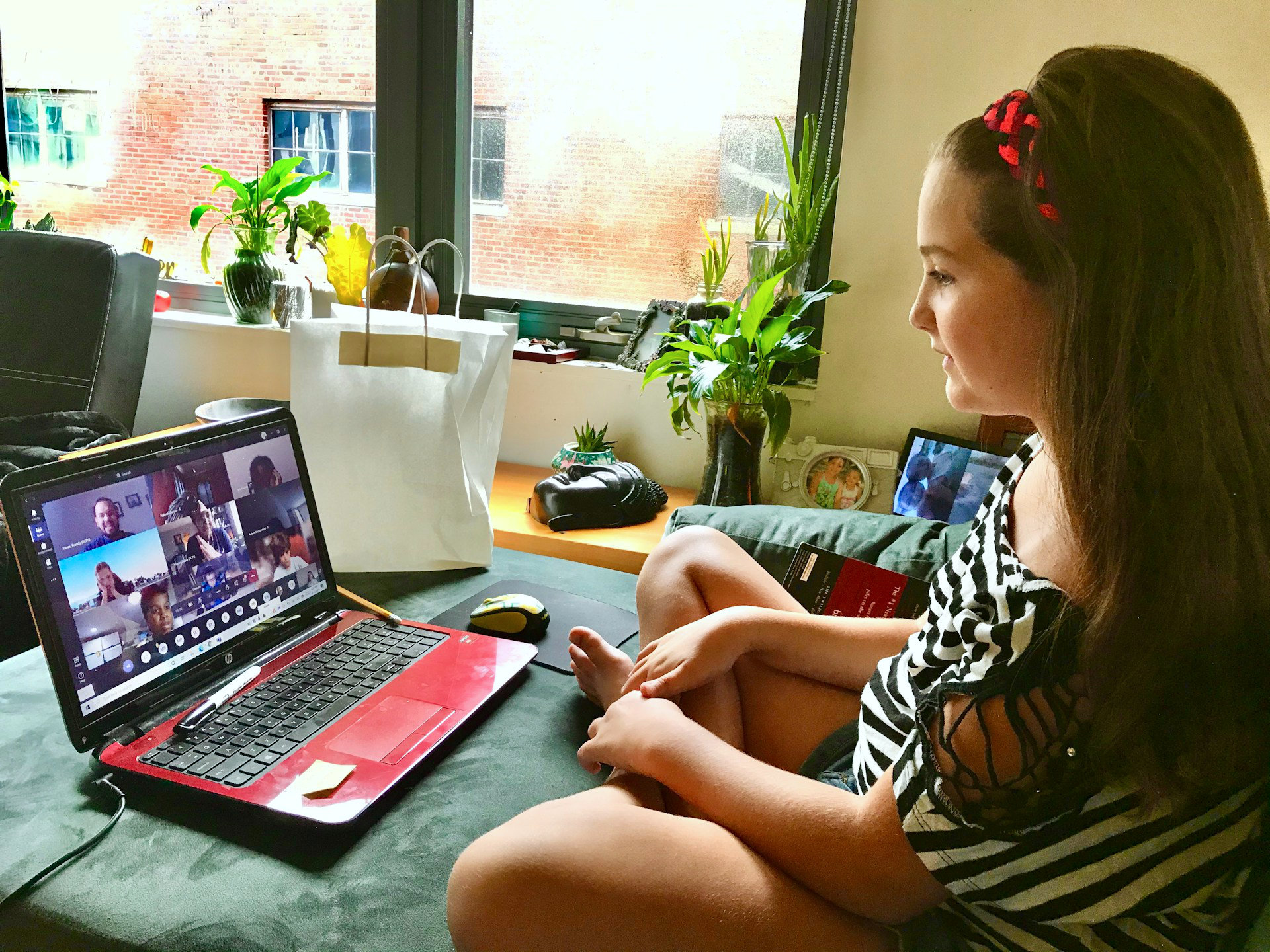
Before diving into rules and restrictions, it’s worth asking: What actually counts as unhealthy screen time? Not all screen exposure is created equal, and some of it can be surprisingly beneficial. Consider these four very different scenarios:
- Watching documentaries
- Researching a new hobby
- Doomscrolling through low-value, short form content (Instagram reels or YouTube shorts)
- Gaming for hours without breaks or social interaction
- Attending an online tutorial
On the surface, all these activities may look the same: your child is glued to a screen. But beneath that surface is a huge difference in the quality of content being consumed and the intent behind it.
Some screen time can promote learning, creativity, and emotional regulation. Interactive learning platforms, educational games, or even calming shows can enhance memory, build language skills, and provide a sense of structure.
Conversely, overstimulation from fast, flashy content or long hours of passive scrolling can interfere with sleep, mood, and attention spans. The real question isn’t just how much time your child spends on screens, but what kind of content they’re engaging with, and why.
The key takeaway is that it’s not about banning screens altogether, it’s about helping children make intentional, mindful choices online.
Encouraging Digital Literacy
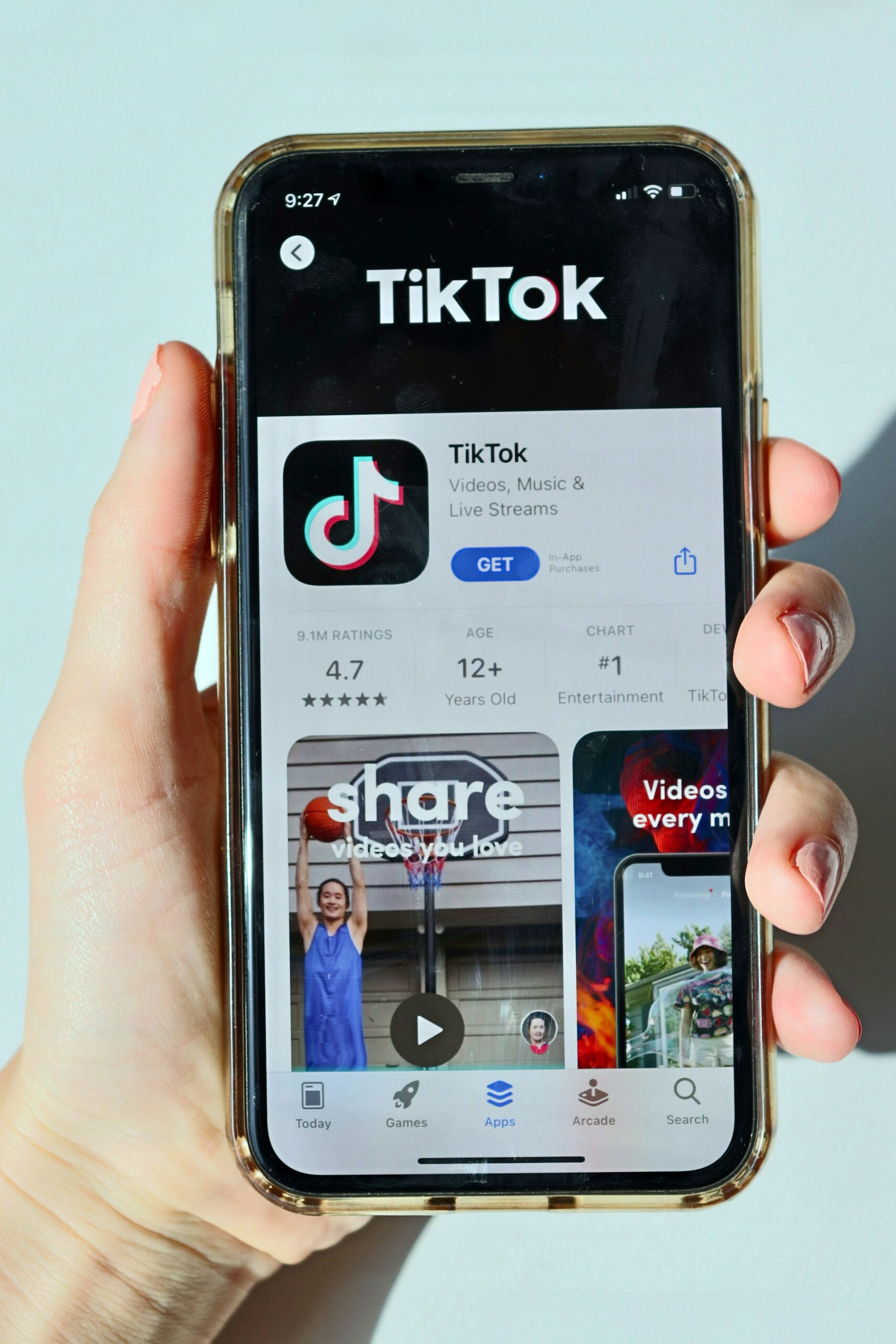
Teaching kids to navigate the digital world is just as important as limiting how long they spend in it. That’s where digital literacy comes in.
Helping your child understand the difference between high- and low-value content—and how to critically evaluate what they see—sets them up to make smarter choices now and in the future.
By guiding them to reflect on why they’re using a device (to learn, relax, connect?), what they’re watching, and how it makes them feel, you’re empowering them with lifelong skills. Instead of fearing screen time, families can work together to build healthy tech habits.
How Unhealthy Screen Time Affects Kids
It’s no surprise that many parents feel uneasy about how much time their kids spend on screens. Concerns often center around things like attention span, motivation, emotional regulation, social development, and even how screens may impact the brain over time.
With phones, tablets, TVs, and computers always within reach, screens have quietly become the default—whether kids are filling a quiet moment, seeking entertainment, or even learning. In many households, screen time has shifted from an occasional treat to a constant companion.
And the data backs up the concern. According to the American Academy of Pediatrics, children in the U.S. now spend an average of seven hours a day on media devices. That’s a significant portion of their waking life.
So what does that kind of exposure really do to a child’s mind and body? Let’s take a closer look at how excessive screen time can impact their development across key areas.
Cognitive Strain (AKA Brainrot)
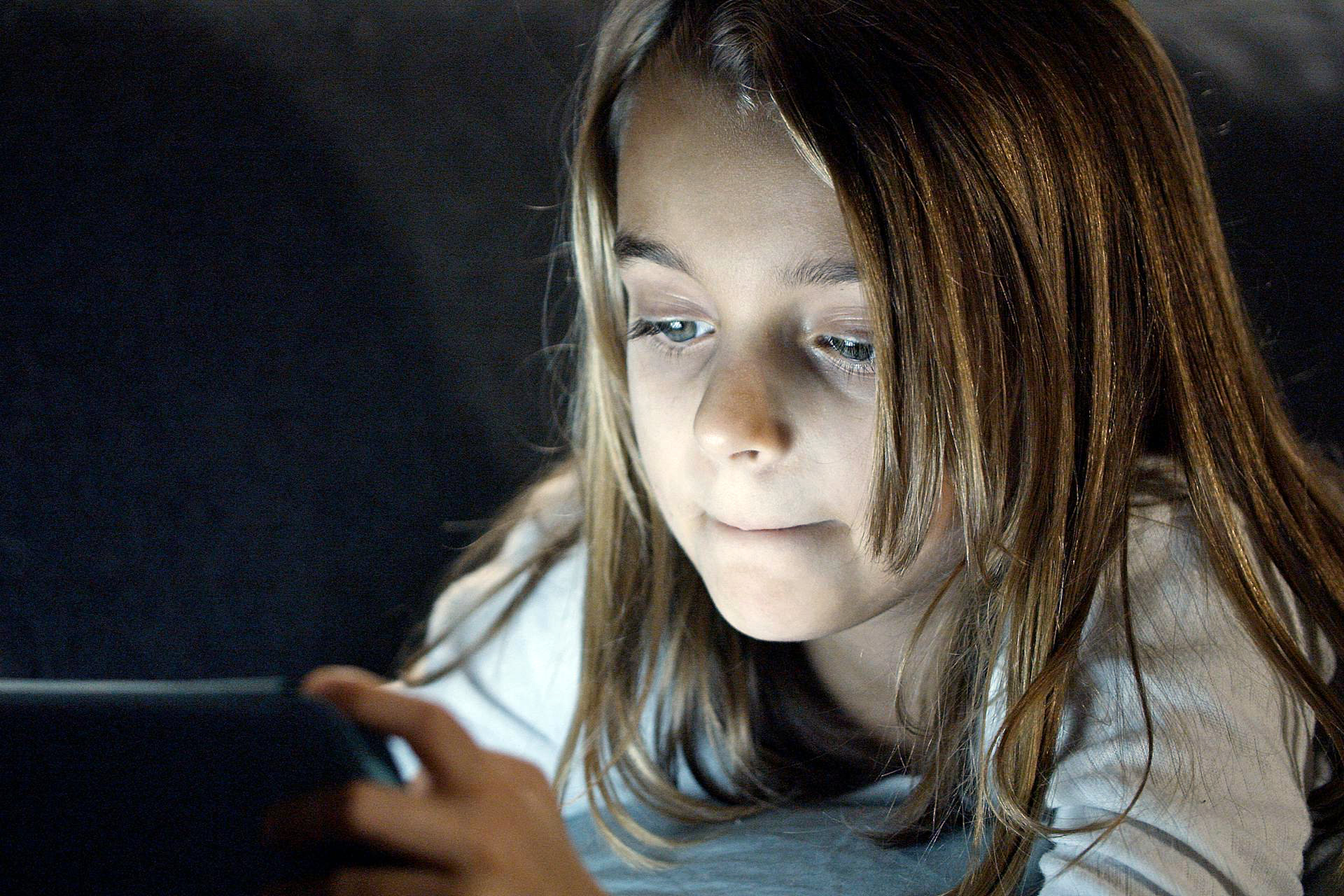
Excessive screen time is increasingly linked to trouble focusing, shorter attention spans, and difficulty with emotional regulation.
A core concern is whether screen time affects neurological functioning—and if so, how that might cascade into behavioral and psychological changes. The answer, according to mounting research, is yes.
Studies have shown that heavy screen exposure can alter the brain’s structure and function. A review published in Psychology Today points to thinning in areas of grey matter, reduced white matter integrity, and impaired dopamine regulation.
These neurological changes can interfere with sleep, impulse control, emotional stability, and overall executive functioning—all of which are essential for healthy childhood development.
Addictive Behaviors and Changes in Reward Circuitry
Screens are designed to be engaging, but sometimes, they’re a little too engaging. Many digital platforms are built around fast-paced, reward-based feedback loops that can hijack the brain’s natural dopamine systems.
Over time, this overstimulation can lead to addiction-like behaviors, where children crave constant stimulation and find it harder to stay focused on low-stimulation tasks like reading or creative play.
This is especially concerning because the frontal lobe—responsible for decision-making, impulse control, and reasoning—undergoes critical development well into young adulthood.
Research shows that excessive screen time may actually delay or impair this development. The result? Kids may struggle more with focus, delayed gratification, and managing their emotions in real-world situations.
Sleep Disruption
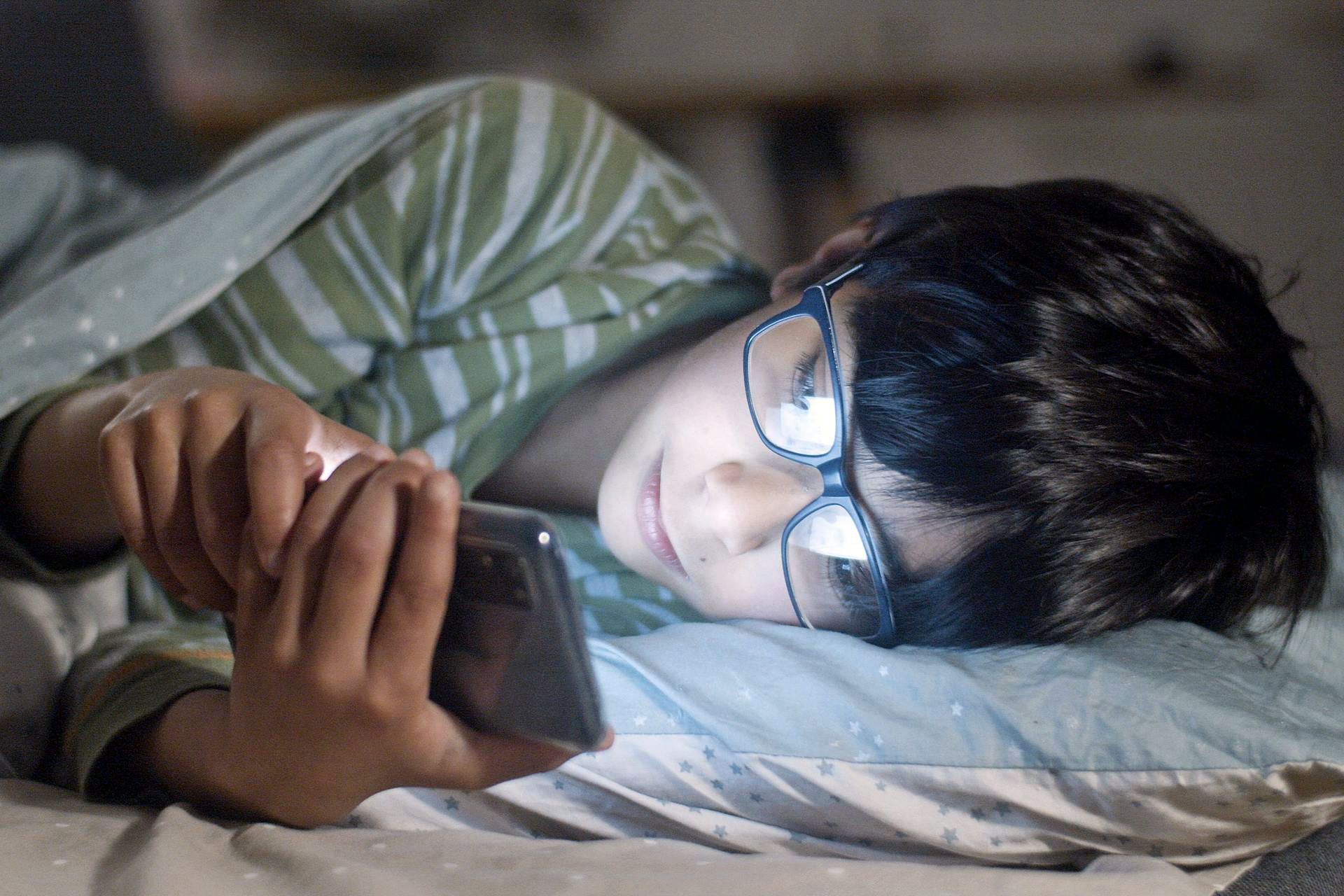
Many parents notice that screen time close to bedtime seems to make winding down harder, and science agrees.
The blue light emitted from screens can suppress melatonin production, a hormone that regulates sleep. When melatonin is disrupted, falling asleep becomes more difficult, and the quality of rest can suffer too.
Over time, irregular sleep patterns can impact everything from a child’s mood and memory to their ability to learn and regulate behavior.
Poor sleep can even create a cycle where kids rely on screens more during the day to stay alert, only to have that screen time further disrupt their next night’s sleep.
Mental Health Shifts
Children who spend a lot of time on screens may become more prone to mood swings, irritability, anxiety, or even signs of social withdrawal.
These symptoms aren’t just tied to the content they consume, but also to the overstimulation and disconnection from in-person interactions that often accompany high screen use.
While moderate screen time can be harmless or even beneficial, constant exposure to fast-paced, emotionally charged, or unrealistic content can distort a child’s emotional world.
Over time, this can contribute to stress, feelings of inadequacy, or reduced resilience when facing real-world challenges.
Physical Issues
When screens dominate a child’s day, physical activity tends to take a back seat. That sedentary lifestyle can contribute to a higher risk of obesity, weaker muscle tone, and poor posture.
Plus, long hours of screen use can lead to digital eye strain, headaches, or even early signs of repetitive stress injuries in the hands and wrists. Even more concerning is that the physical downsides often go unnoticed until they become chronic.
If screen time is replacing time that would otherwise be spent moving, playing, or interacting with others, the long-term consequences for physical health and development can be substantial.
Socio-Emotional Development

Given the findings on screen time and neurology, researchers have turned their focus on the relationship between media use and behavioral and social-emotional functioning.
UCLA recently conducted a creative study to demonstrate how electronic consumption can impair children’s ability to recognize emotions and non-verbal cues as reported by NPR.
Researchers found that the students who went to camp for five days and did not have access to media devices scored significantly better when it came to identifying facial emotions or other nonverbal cues than the children who continued to have access to devices.
In the NPR report, both Dr. Greenfield from UCLA and Dr. Hogan from the American Association of Pediatrics (AAP) caution parents and schools to better understand the effects of screen time on children.
Currently, the AAP recommends limiting electronics for children to: “Limit entertainment screen time to less than one or two hours per day; in children under 2, discourage screen media exposure.”
Is There Data Available On Very Young Children?
Yes—and it’s growing. Researchers are now taking a closer look at how screen exposure affects children under the age of three.
One particularly eye-opening article from The Guardian highlights research from Boston University School of Medicine, which suggests that kids under 30 months don’t learn as effectively from screens as they do through real-world, human interaction.
Dr. Jenny Radesky, a developmental-behavioral pediatrician, emphasizes that face-to-face, hands-on engagement is critical for early social and emotional development.
She points out that early exposure to screens may disrupt the development of empathy, communication skills, and emotional regulation.
These findings suggest that screen time might have a more profound impact on very young children than previously understood—and underscore the need for more research to guide parents and educators in the early years.
How Much Screen Time is Too Much?
There isn’t a perfect number that fits every family or every child, but the general guidelines offer a helpful starting point.
For children ages 2 to 5, experts recommend limiting screen time to about one hour per day, with a focus on high-quality programming that’s ideally co-viewed with a caregiver.
For kids aged 6 and older, the goal should be to create consistent boundaries while ensuring that screens don’t crowd out sleep, physical activity, or offline play.
Rather than obsessing over the clock, it’s often more useful to look at the bigger picture. Is screen time replacing face-to-face conversations, movement, creativity, or quiet rest? If so, it might be time to reassess.
When screens are used mindfully, as part of a balanced routine, they can be a tool. But when they begin to dominate, that’s when problems tend to creep in.
Smart Ways to Set Boundaries at Home
If you’re ready to take control of screen time, the first step is creating clear, consistent boundaries that work for your family. Too much screen time often creeps in without anyone noticing, until it starts impacting sleep, behavior, or family connection.
The good news? Small, intentional changes can make a big difference. By setting household norms around where, when, and how screens are used, you’re helping your child build healthy digital habits that last.
Designate Screen-Free Zones

Creating specific no-screen areas in your home helps build boundaries and promotes healthier habits. Bedrooms, dinner tables, and car rides are great starting points. These spaces encourage conversation, rest, and being present with each other.
When these zones are enforced consistently, kids are more likely to follow suit. It reinforces the idea that not every moment needs to be filled with a screen, and some of the best interactions happen when devices are put away.
Set Daily Routines
Children thrive on structure, and screen time is no exception. Setting clear, scheduled periods for digital use—like after homework or before dinner—helps reduce power struggles and unpredictability.
By establishing routines, kids begin to internalize when screen time is appropriate. It also frees you from negotiating usage daily. The goal isn’t to eliminate screens entirely but to help your child balance them within a predictable, healthy daily rhythm.
Watch Or Play Together When Possible

Co-viewing or playing alongside your child turns screen time into quality time. You can guide them through content, ask questions, and model healthy engagement with technology.
This shared experience deepens your connection and builds critical thinking skills. It also allows you to ensure the content is age-appropriate and meaningful, especially for younger children who learn best through interaction and feedback.
Offer Engaging Alternatives
When boredom strikes, screens are often the easiest fallback. Offering alternatives—like building blocks, puzzles, craft supplies, or backyard games—gives kids more creative, stimulating ways to spend their time.
Make these options easy to access and appealing. Having a few “go-to” activities ready can help shift your child’s attention away from devices and toward activities that develop imagination, problem-solving, and physical movement.
Use Built-In Device Features To Monitor Usage
Most devices now include built-in features to monitor and manage screen time—take advantage of them. Use app timers, content filters, and usage reports to support your household rules.
These tools aren’t just for control—they’re about teaching self-regulation. Kids begin to understand limits and take ownership of their habits when they see how much time they’ve actually spent on screens.
Model Good Habits
Kids watch how adults use technology. If you’re glued to your phone during meals or multitasking with screens constantly, they’ll see that as normal.
Be intentional about putting devices down during meals, conversations, and family time. Modeling healthy screen behavior shows your child that digital balance is possible—and worth practicing.
What If It’s Already a Struggle?
If your child is showing signs of irritability when screens are taken away, struggling to sleep, or prioritizing screens over relationships or real-world play, it may be time to reevaluate.
Start by having an open conversation with your child about screen time and its effects. Gradually reset habits together, rather than trying to overhaul everything at once.
Change takes time, and some resistance is normal. But a consistent and collaborative approach can make the transition smoother for everyone.
Limiting Screen Time: Should You Do It?
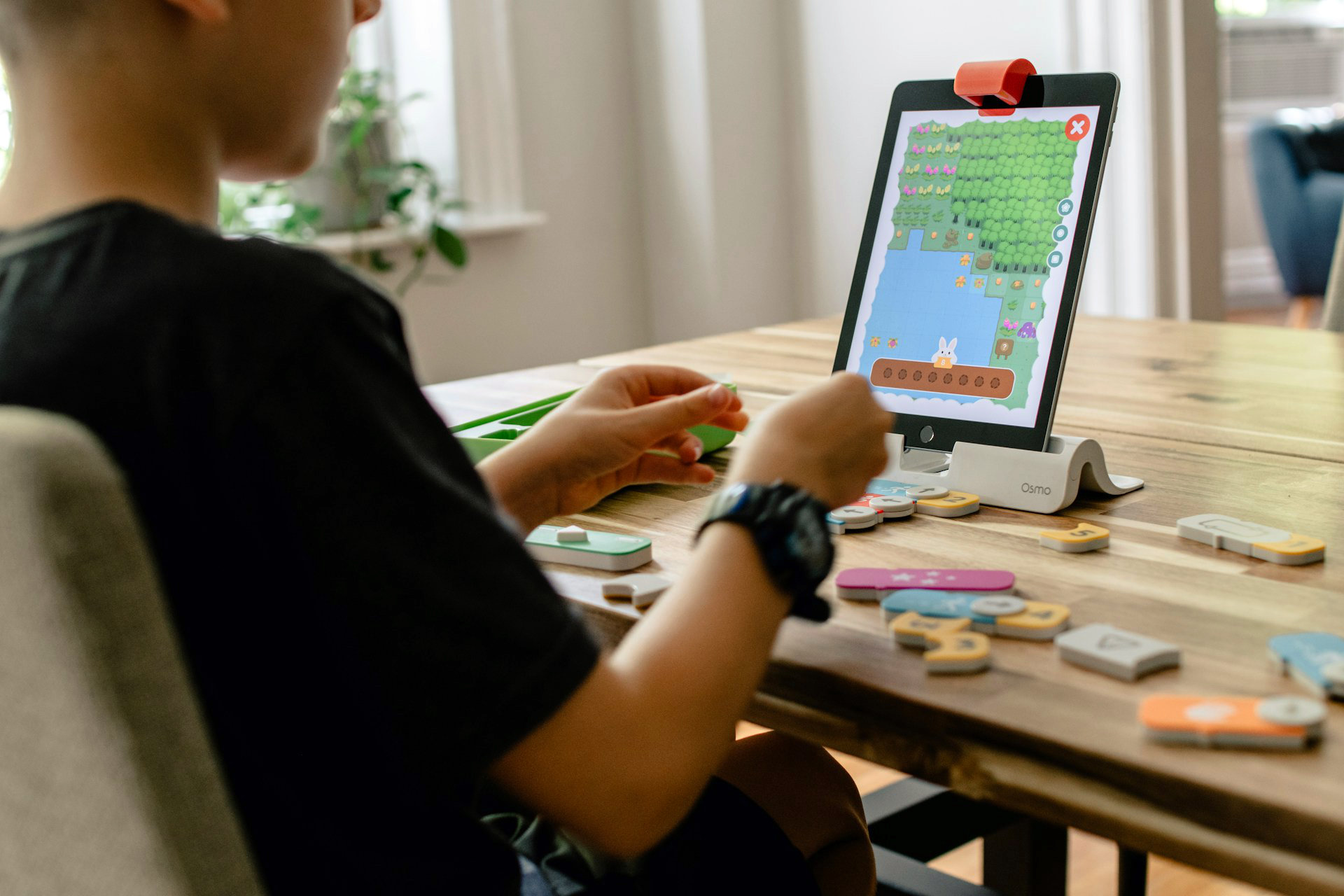
Yes—but not out of fear. The goal isn’t to eliminate screens, but to manage them intentionally. Screens can support learning, creativity, and connection—but too much too often can crowd out the things that help kids thrive.
Start small. Set boundaries that align with your values and your family’s needs, and adjust as your child grows. Limiting screen time isn’t about punishment, it’s about protecting what matters most: your child’s brain, body, and well-being.
Interested in learning more? Book a free 15-minute consultation with a member of our team.
Contact us at 858-531-1122
Or send us a message and we will return your inquiry shortly
